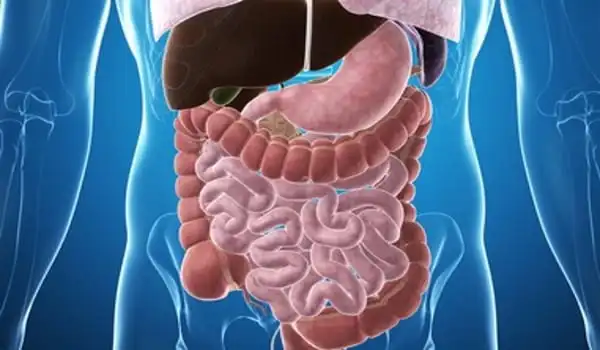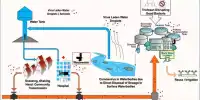Autism spectrum disorder (ASD) refers to a collection of brain developmental diseases characterized by stereotyped behavior and communication and social interaction difficulties. Initially, it was thought that ASD was caused by the environment. However, it is currently accepted that ASD development is the result of a combination of environmental, genetic, and neurodevelopmental factors. The prevalence of ASD in the development of children and society imposes an economic burden on families, with the main expenditures connected with special education and parental productivity loss.
Researchers have discovered unique RNA biomarkers associated with gastrointestinal difficulties in autistic children. The discoveries could one day lead to tailored medicines focused at relieving these people’s agony.
David Beversdorf, a physician at the University of Missouri Thompson Center for Autism and Neurodevelopmental Disorders, works with individuals who have autism spectrum disorder (ASD), many of whom also have gastrointestinal or digestive difficulties, such as constipation and diarrhea. These symptoms are more common in children with ASD than in their neurotypical counterparts, yet some individuals may not respond well to traditional therapies, such as laxatives.
Beversdorf recently teamed with a Penn State University researcher to uncover particular RNA biomarkers associated with gastrointestinal difficulties in children with autism. The discoveries could one day lead to tailored medicines focused at relieving these people’s agony.
We wanted to understand how a child’s body responds to the diverse bacteria present in the mouth and whether these interactions contribute to gastrointestinal symptoms. By finding these specific microRNAs in autism-related gastrointestinal disorders in children’s saliva, these molecules may serve as future targets for creating novel treatments or evaluating medication effectiveness in children with autism-related gastrointestinal conditions.
Steve Hicks
At multiple academic medical centers around the country, saliva samples were gathered from roughly 900 children, some of whom had autism and reported gastrointestinal issues. After studying the data, the researchers discovered particular RNA biomarkers associated with autistic children who also had gastrointestinal issues.
“We wanted to understand how a child’s body responds to the diverse bacteria present in the mouth and whether these interactions contribute to gastrointestinal symptoms,” said Steve Hicks, an associate professor of pediatrics at Penn State College of Medicine who worked on the study alongside Beversdorf. “By finding these specific microRNAs in autism-related gastrointestinal disorders in children’s saliva, these molecules may serve as future targets for creating novel treatments or evaluating medication effectiveness in children with autism-related gastrointestinal conditions.”
Beversdorf went on to say that RNA has regulatory properties throughout the human body, and the specific RNA found in the study could have regulatory impacts on biological pathways connected to metabolism, digestion, depression, and addiction.

“It’s one of those ‘chicken or the egg’ cases where we don’t know if it’s the RNA potentially contributing to the gastrointestinal issues, or if the gastrointestinal issues are causing the RNA to be expressed differently, but we have identified a relationship that will be useful to further investigate going forward,” said Beversdorf, who also holds appointments in the MU College of Arts and Science and the MU School of Medicine. “This research has the potential to contribute to precision medicine one day, where we can follow children with autism and gastrointestinal symptoms over time and assess how they might respond to personalized treatments, with the ultimate goal of reducing their symptoms and improving their quality of life.”
The study, titled “Saliva RNA biomarkers of gastrointestinal dysfunction in children with autism and neurodevelopmental disorders: Potential implications for precision medicine,” was published recently in Frontiers in Psychiatry. The National Institutes of Health contributed funding for the study. Kristin Sohl, David Levitskiy, Priscilla Tennant, Robin Goin-Kochel, Rebecca Shaffer, Alexandra Confair, and Frank Middleton are among the study’s co-authors.
The NextGen Precision Health initiative brings together innovators from across the University of Missouri and the UM System’s three other research universities in pursuit of life-changing precision health advancements, highlighting the promise of personalized health care and the impact of large-scale interdisciplinary collaboration. It’s a joint endeavor to use Mizzou’s scientific strengths to improve Missouri’s health in the future. The Roy Blunt NextGen Precision Health building, which debuted in October 2021 and will expand collaboration between researchers, physicians, and industry leaders in a state-of-the-art research facility, is an essential aspect of the plan.
Because of the number of persons affected, autism spectrum disorder (ASD) is possibly one of the most serious medical conditions of our day. The prevalence of ASD has risen considerably over the last three decades, and it is now believed that 2% (1) or more (2) of children in the United States are affected (US). One of the most significant problems in detecting, diagnosing, treating, and comprehending ASD is that it is solely defined based on the observation of behaviors by trained or untrained individuals.













